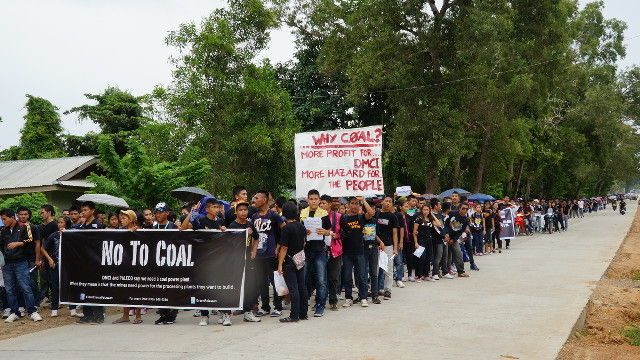SUMMARY
This is AI generated summarization, which may have errors. For context, always refer to the full article.

MANILA, Philippines – The Philippine government needs to involve the public in decisions that impact the environment, according to an international report on environmental democracy.
The Environmental Democracy Index (EDI), launched on Wednesday, May 20, is the first index that measures how well countries involve its citizens in environmentally-critical decisions through national laws.
The EDI compared 70 countries in terms of the following indicators:
1. Transparency – Right of the public to freely access information regarding the environment
2. Participation – Avenues given to the public to be involved in decisions that affect the environment
3. Justice – Avenues given to the public to seek justice before an independent and fair legal authority in cases of environmental harm or violation of rights
The index was developed by civil society network The Access Initiative and think tank World Resources Institute.
The Philippines was ranked 40th out of the total 70 countries that were assessed by the index.
Out of a top score of 3, the Southeast Asian country garnered a score of 1.35. Lithuania, an Eastern European country, topped the index with a score of 2.42.
Countries in the top 10 include Russia (2.25), the United States (2.16), and South Africa (2.16).
The 3 countries with the lowest scores are Haiti (0.51), Malaysia (0.58), and Namibia (0.59).
Meaningful consultation
The Philippines’ main weakness is its limited avenues for involving the public in informed and meaningful participation in decision-making, reads the Index write-up.
Though environmental laws like the Clean Air Act and Clean Water Act stipulate that public consultation be held for important decisions and policies, “the law gives discretion to government agencies whether to seek public input during the preparation of environmental rules,” says the index.
Philippines’ score in the EDI:
| Indicator | Score |
| Transparency | 1.53 |
| Participation | 0.81 |
| Justice | 1.71 |
| Total Country Score | 1.35 |
A look at the Implementing Rules and Regulations (IRR) of the Philippine Environmental Impact Statement System shows this.
The IRR requires the conduct of a public hearing on an environmentally-critical project “unless otherwise determined by the EMB (Environment Management Bureau).”
For other types of projects, a public hearing is not mandatory unless again required by the EMB.
Such a rule gives the EMB the power to decide that a public consultation is not necessary. And even when the public thinks such a consultation is needed, there is no avenue for them to appeal for one, says the index.
Another indicator of informed public participation is the accessibility of Environmental Impact Assessments (EIAs) – studies that are meant to show the effect of a development project on the environment, be it a copper mine, a resort, or a road.
Meaningful public participation means that information on violations, permits, and contracts given to companies should be made available to all.
Public comments on such decisions should also be acknowledged, according to the Index. In practice, this means a documentation of the comments and officials responding to the comments.
FOI law will help
The Philippines, however, “scored well” on the Transparency and Justice indicators, said the index.
The Constitution requires that the public be given access to information on “matters of public concern,” which the index says should include environmental concerns.
Some environmental laws also require such information to be made publicly available. (READ: State of PH environment: Good conservation efforts, bad air quality)
However, DENR rules restrict access to certain documents. The requester is required to reveal his identity and explain why he needs the information.
“Hence, an ordinary cause-oriented group may be denied access to information but a stakeholder (e.g. affected community) may get said information,” reads the index.
One major set-back is that the Philippines is yet to enact a Freedom of Information law, it noted.
Another critique is that there are no laws requiring the government to collect information on forests and water. The government has data, but there is no requirement for it to be regularly updated and made accessible to all.
In terms of Justice, the 3rd indicator, legal mechanisms let the public challenge government decisions on environmental issues.
Most famous of these is the Writ of Kalikasan, a legal remedy that allows a Filipino citizen to contest a project in light of the environmental harm it may bring. (READ: Court to water company: Stop extracting from Cavite waters)
The writ can stop such projects and require government agencies and companies to respond to the citizen’s concern within a certain number of days.
Non-governmental organizations (NGOs) are also granted legal standing, allowing them to file environmental cases against government agencies and private companies.
The Philippine government has yet to respond to the EDI. According to the EDI team, the findings were sent to governments in April and May. The country scores and ranking may be adjusted in light of feedback sent by the governments. – Rappler.com
Add a comment
How does this make you feel?
There are no comments yet. Add your comment to start the conversation.